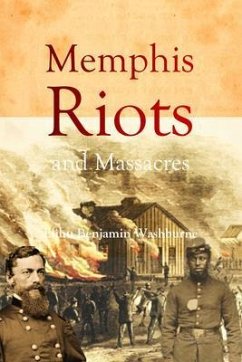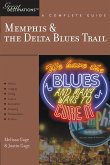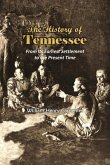"Washburne...depicted the riot as a massacre of blacks approved by the press and city officials." -But There was No Peace (2007)
"Washburne...highlight[ed] for the record that it was former slaves who had been brutalized by white southerners in this riot." -Terror in the Heart of Freedom (2009)
"Fueling this quest was Washburne's fervent engagement with the great postwar questions, and his intuition that the riot held the answers to many of them." -A Massacre in Memphis (2013)
"Washburne...reports...the temper and feeling of the people is bad, if not worse, than at any time previous to the outbreak of rebellion." -Daily Ohio Statesman, Jun. 23, 1866
What sparked the Memphis riot of 1866 that led to the deaths of 48 and homelessness of hundreds?
In 1866, an on-site investigation by Congressman Elihu Benjamin Washburne (1816-1887) and his committee would result in Washburne's harrowing 1866 report titled, "Memphis Riots and Massacres."
The Memphis massacre of 1866 was a series of violent events that occurred from May 1 to 3, 1866 in Memphis, Tennessee. The racial violence was ignited by political, social, and racial tensions following the American Civil War, in the early stages of Reconstruction. After a shooting altercation between white policemen and black veterans recently mustered out of the Union Army, mobs of white residents and policemen rampaged through black neighborhoods and the houses of freedmen, attacking and killing black soldiers and civilians and committing many acts of robbery and arson.
In introducing his book, Washburne writes:
"The committee reached Memphis on the 22d day of May last, and immediately proceeded with their investigations. They examined a hundred and seventy witnesses....Previous to this time the people of Memphis had been clamoring for a withdrawal of all the United States troops, boasting that they were perfectly competent to take care of themselves. General Stoneman had, therefore, turned the city and that section of country over to the civil authorities, as far as it was practicable, holding them responsible for good order, peace, and quiet...."
About the author:
Elihu Benjamin Washburne (1816-1887) was an American politician and diplomat. A member of the Washburn family, which played a prominent role in the early formation of the United States Republican Party, he served as a congressman from Illinois before and during the American Civil War.
"Washburne...highlight[ed] for the record that it was former slaves who had been brutalized by white southerners in this riot." -Terror in the Heart of Freedom (2009)
"Fueling this quest was Washburne's fervent engagement with the great postwar questions, and his intuition that the riot held the answers to many of them." -A Massacre in Memphis (2013)
"Washburne...reports...the temper and feeling of the people is bad, if not worse, than at any time previous to the outbreak of rebellion." -Daily Ohio Statesman, Jun. 23, 1866
What sparked the Memphis riot of 1866 that led to the deaths of 48 and homelessness of hundreds?
In 1866, an on-site investigation by Congressman Elihu Benjamin Washburne (1816-1887) and his committee would result in Washburne's harrowing 1866 report titled, "Memphis Riots and Massacres."
The Memphis massacre of 1866 was a series of violent events that occurred from May 1 to 3, 1866 in Memphis, Tennessee. The racial violence was ignited by political, social, and racial tensions following the American Civil War, in the early stages of Reconstruction. After a shooting altercation between white policemen and black veterans recently mustered out of the Union Army, mobs of white residents and policemen rampaged through black neighborhoods and the houses of freedmen, attacking and killing black soldiers and civilians and committing many acts of robbery and arson.
In introducing his book, Washburne writes:
"The committee reached Memphis on the 22d day of May last, and immediately proceeded with their investigations. They examined a hundred and seventy witnesses....Previous to this time the people of Memphis had been clamoring for a withdrawal of all the United States troops, boasting that they were perfectly competent to take care of themselves. General Stoneman had, therefore, turned the city and that section of country over to the civil authorities, as far as it was practicable, holding them responsible for good order, peace, and quiet...."
About the author:
Elihu Benjamin Washburne (1816-1887) was an American politician and diplomat. A member of the Washburn family, which played a prominent role in the early formation of the United States Republican Party, he served as a congressman from Illinois before and during the American Civil War.
Dieser Download kann aus rechtlichen Gründen nur mit Rechnungsadresse in A, D ausgeliefert werden.









